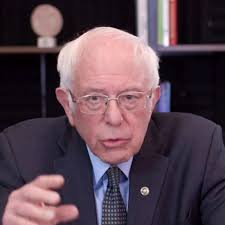And today, the supporters of the disastrous Trans-Pacific Partnership are telling us to ignore the past and trust them when they tell us this time is different. This deal will really, really create jobs and be good for America, cross our hearts and hope to die.
But the reality is that this job-killing free trade agreement is based on the same flawed NAFTA trade model. It should be called what it is: NAFTA on steroids. Here are four reasons why we must do everything we can to defeat the TPP.
First, this trade agreement continues an approach toward trade that forces Americans to compete against workers in Vietnam where the minimum wage is 65 cents an hour. Even worse, this trade deal would give privileged access to the U.S. market to Malaysia where migrant workers in the electronics industry are working as modern-day slaves -- workers who have had their passports and wages confiscated and are unable to return to their own countries. It is bad enough to force U.S. workers to compete with low-wage labor. They should not have to compete with no-wage labor.
This is not "free trade." This is the race to the bottom. Not only have good-paying jobs been lost. The mere threat of corporations moving jobs to low-wage countries has forced too many workers in the U.S. to agree to unacceptable cuts in pay, health care, and pension benefits. We cannot allow that to continue.
Second, when we are talking about the TPP, it's important to know who is for it and who is against it.
Large, multinational corporations that have outsourced millions of good-paying American jobs to China, Mexico, Bangladesh and other low-wage countries think the TPP is a great idea. They understand that this legislation will allow them to accelerate efforts to hire cheap labor abroad. The TPP is also strongly supported by Wall Street and large pharmaceutical companies who understand that their global profits will increase if this agreement is passed.
On the other hand, every union in this country, representing more than 12 million American workers, is in opposition to this agreement because they understand that the TPP will lead to the loss of decent-paying jobs and will depress wages.
Virtually every major environmental organization also opposes this legislation. They understand that the TPP will make it easier for multinational corporations to pollute and degrade the global environment.
Major religious groups also oppose this legislation because it would reward some of the worst violators of human rights in the world.
Third, the TPP would undermine democracy by giving multinational corporations the right to challenge any law or regulation that could reduce their "expected future profits" through what is known as the Investor State Dispute Settlement system.
Under NAFTA, TransCanada is suing the U.S. under the tribunal for $15 billion because President Obama had the courage to reject the Keystone Pipeline. The president made this decision because the Keystone Pipeline would have transported some of the dirtiest tar sands oil on the planet and made climate change even worse. We should not allow this decision to be threatened or second-guessed by an unelected international tribunal.
A French waste management firm, Veolia, used the same process to sue Egypt for $110 million because it increased its minimum wage and improved its labor laws, in violation of a contract it had made with the government. In other words, Egypt's "crime" is trying to improve life for their low-wage workers.
Vattenfall, a Swedish energy company, has used the process to sue Germany for $5 billion over its decision to phase out nuclear power. Should the people of Germany have the right to make energy choices on their own or should these decisions be left in the hands of an unelected international tribunal?
Do we really want to tell governments all around the world, including the U.S., that if they pass legislation protecting the wellbeing of their citizens they could pay substantial fines to multinational corporations because of the loss of future profits? Of course not. But that's exactly what will happen if the TPP goes into effect.
Fourth, the TPP would substantially raise the price of prescription drugs for some of the most desperate people in the world. Pharmaceutical companies are doing everything they can to extend their monopoly rights and make it harder to access lower cost generic drugs, even if it means that thousands will die because they cannot afford higher prices for the drugs they need.
According to Oxfam, over 125,000 people in Vietnam alone -- more than half of HIV/AIDS patients living in that country -- could lose access to the medication they need to survive if the TPP is implemented. Moreover, Doctors Without Borders has stated that: "The TPP agreement is on track to become the most harmful trade pact ever for access to medicines in developing countries."
(Note: You can view every article as one long page if you sign up as an Advocate Member, or higher).





